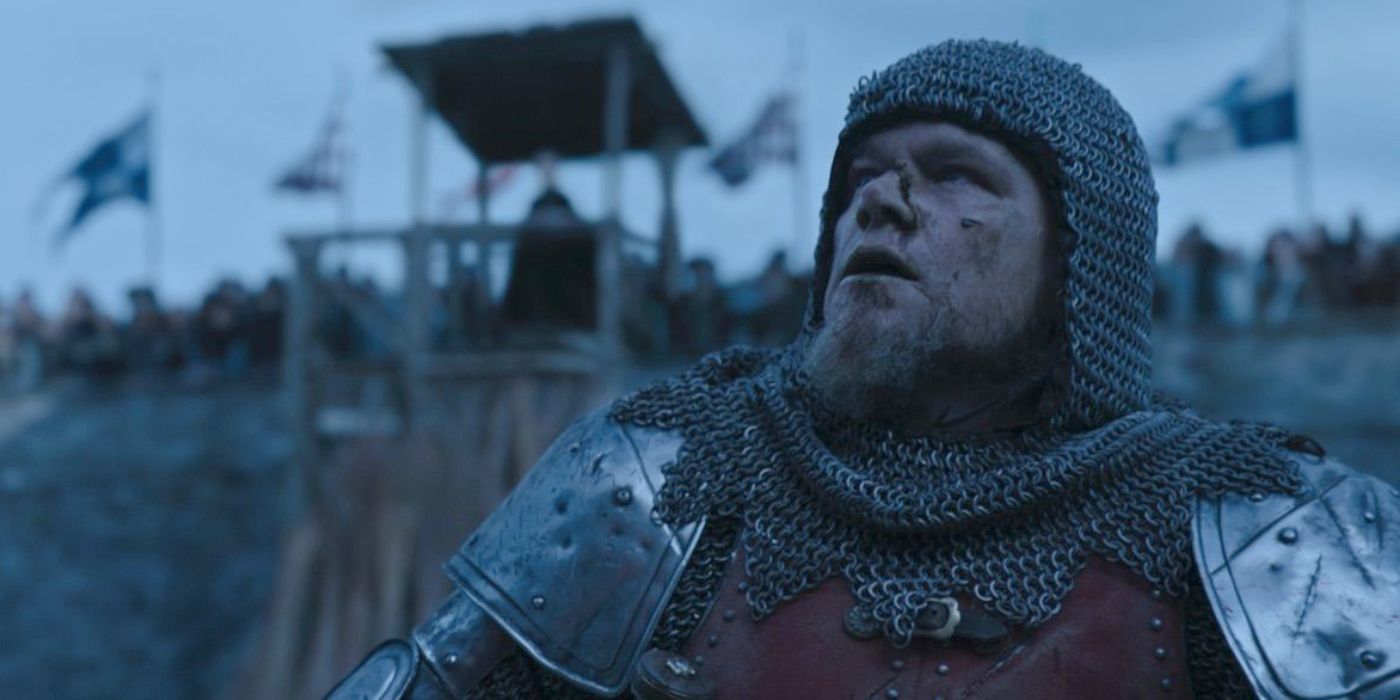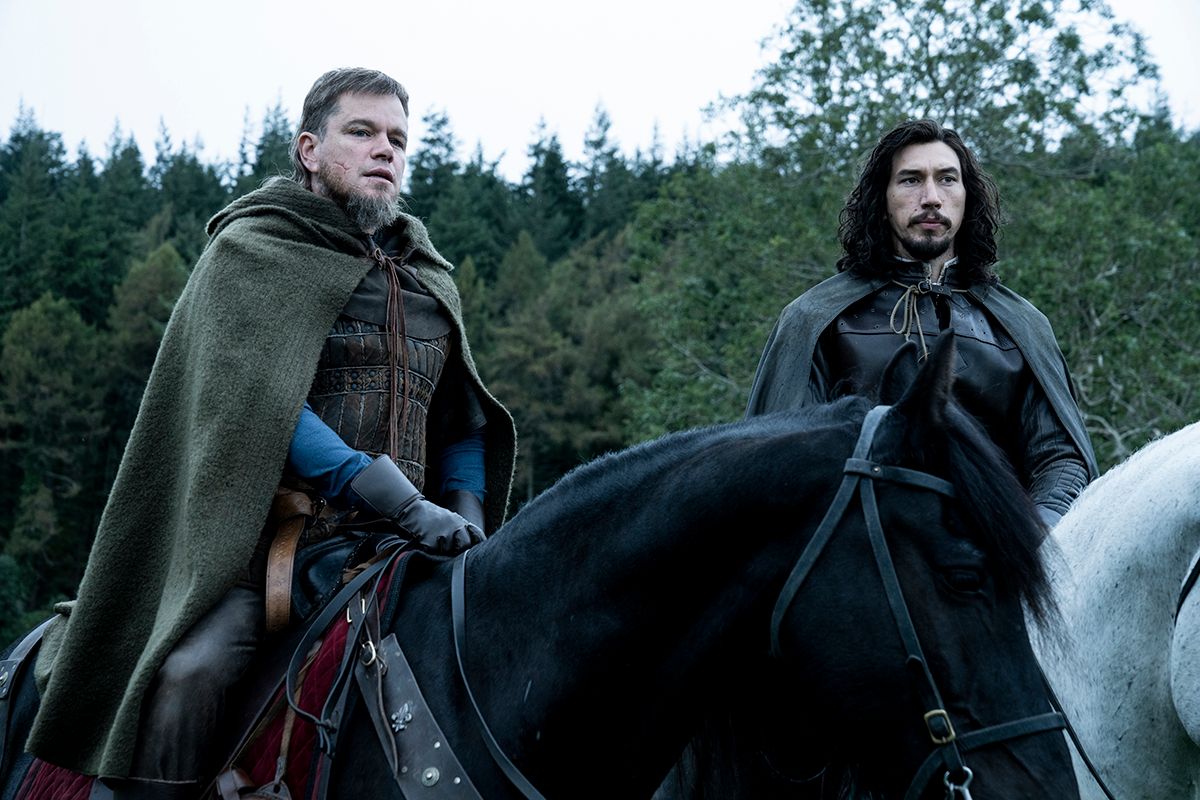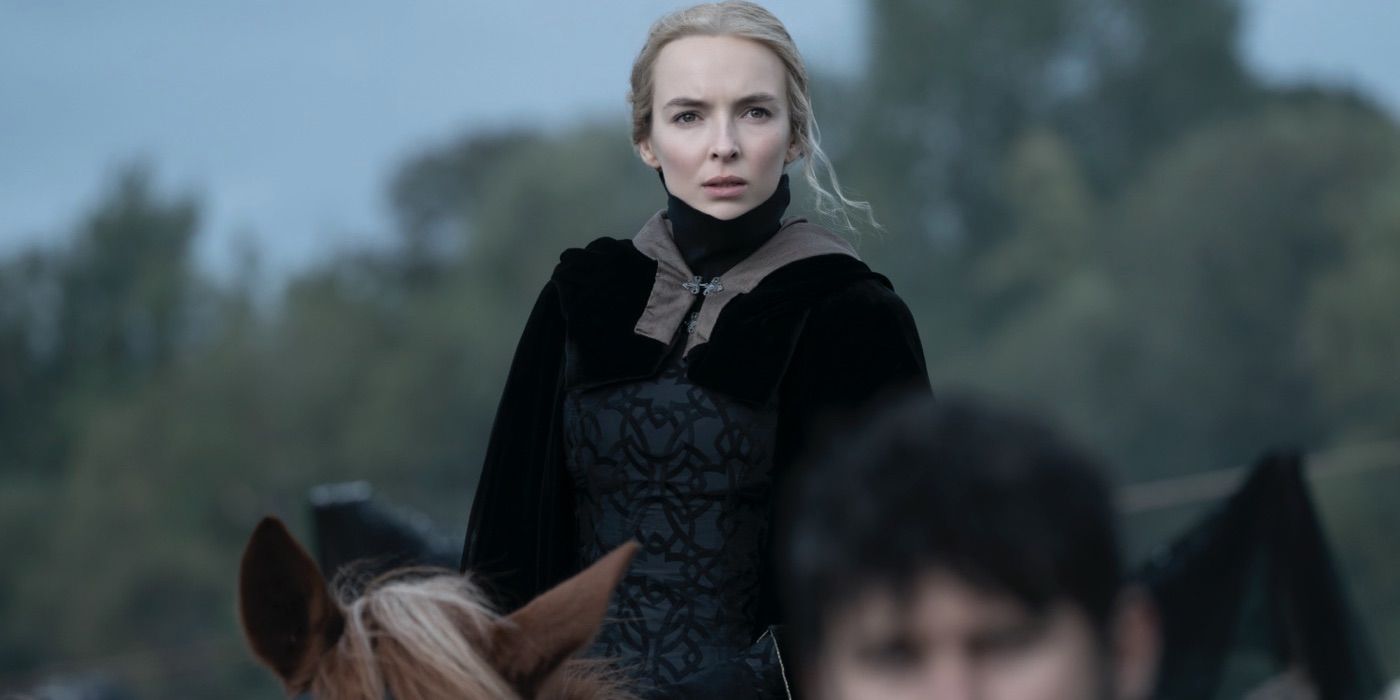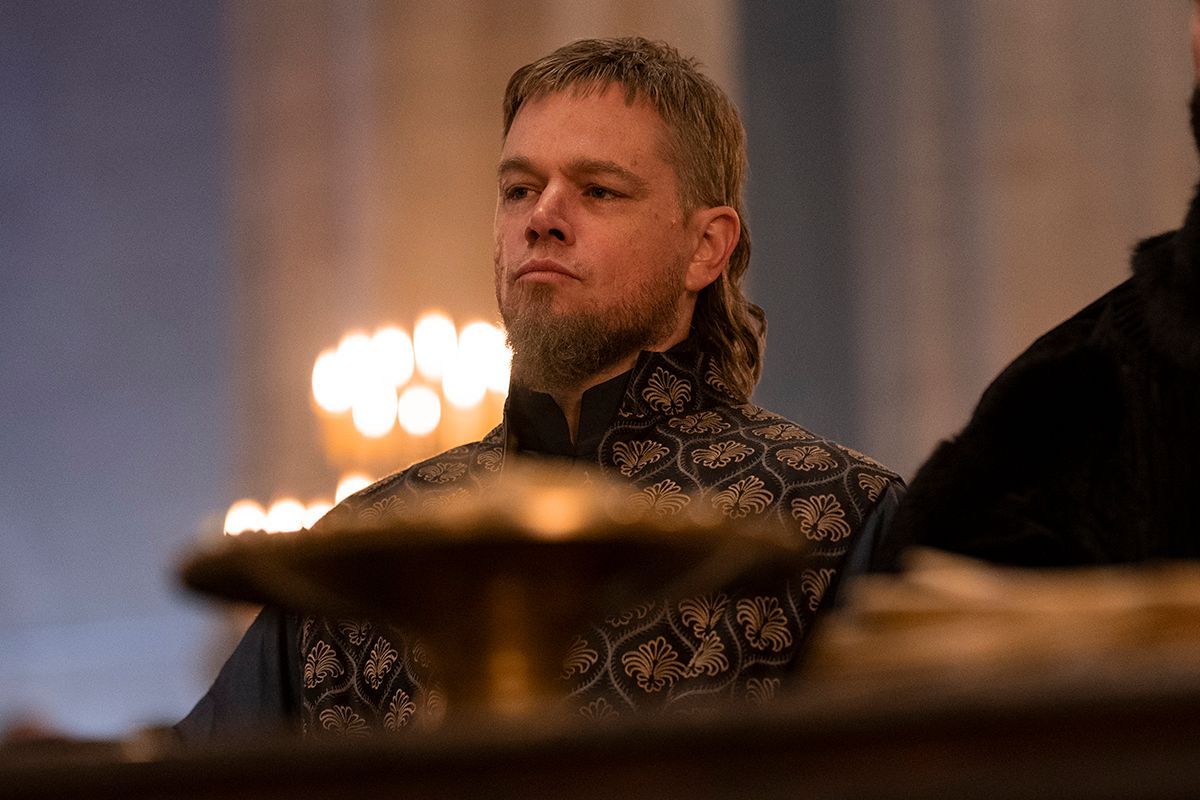At first glimpse, it looks like The Last Duel could be a deeply cringe-worthy experience. Its subject matter involves two men fighting over a rape accusation. The director is a man and two of the three screenwriters are men. But this high-wire act ends up yielding one of the best films of Ridley Scott’s industrious career as he uses his period drama bona fides to draw us deeper into a brutal, nasty, masculine-dominated world that’s far too familiar to our own. Over 600 years may have passed since the events of The Last Duel, but the script from Nicole Holofcener and co-writers and co-stars Matt Damon and Ben Affleck brilliantly shows the full truth not from fragile men but from a woman whose survival rests on seeing the world as it is and not reliant on myths of honor and love. With stunning performances across the cast, immaculate production design, and the same kind of “unleash hell” historical nastiness of works like Gladiator and Kingdom of Heaven, The Last Duel is a captivating drama that cuts to the heart of toxic masculinity and the systems it imposes.
Set from 1370-1386, The Last Duel uses a Rashomon-like narrative showing the perspectives of its three leads. The first chapter is The Truth According to Jean de Carrouges (Damon), the second is The Truth According to Jacques Le Gris (Adam Driver), and the final chapter is The Truth According to The Lady Marguerite (Jodie Comer) with the words “The Truth” lingering on screen for Lady Marguerite’s chapter (I would say this was done to erase any confusion that this is a he-said/she-said equivocation, but after my screening I still heard people arguing about whether or not Marguerite was telling the truth, thus reinforcing the film’s themes and severely bumming me out). The case concerns whether or not Le Gris, a former friend of de Carrouges whose fortunes rose thanks to the patronage of his lord liege Pierre d’Alençon (Affleck) while de Carrouges’ fortunes fell, raped Marguerite. For de Carrouges, this was an attack on his personal honor and the final insult after almost two decades of slights. For Le Gris, he claimed he was in love with Marguerite and her protestations were perfunctory and belied her true desire. But Marguerite sees through both men and risks her life so that the truth can come out.
Once you see that Scott is giving de Carrouges and his first chapter an overly heroic framing, it’s clear where this story is going to go. This is not about weighing all viewpoints equally but essentially showing, through the lens of the historical drama, “why women don’t report.” This is a world (and remains so) where male vanity sets the rules to cover up its deep frailties. De Carrouges and Le Gris behave the way they do not because they’re mustache-twirling villains (although that’s how they choose to see each other), but because they each believe they’re the hero of the story with Marguerite as a thing to exist in the background of their own narrative, whether it’s the tale of the wronged war hero (as de Carrouges sees himself) or the tale of the mad-with-passion lover (as Le Gris sees himself). Only Marguerite sees this world and these men for who they truly are because that’s how you have to survive as a woman in this world. Romantic notions are for men; women have to live in reality.
That’s why Comer’s performance is such a marvel to behold. She basically has to wait in the background for over 90 minutes while Damon and Driver flex and peacock, and then when it’s time for her chapter she has to absolutely own the entire movie. It’s not simply that Marguerite is “strong” or that she “believes in truth”, although those are both facets of her character. It’s that she has to play to a reality that both de Carrouges and Le Gris seek to obscure. For all the blood they shed and nastiness they impose on the world, they hide behind lies of nobility and chivalry. These are not ideals to aspire towards but rather excuses for atrocious behavior, and Marguerite does not have the benefit of these lies, so she has to live with a far more nuanced reality. Marguerite is the “hero” of the story in that she chooses to live honestly, but honesty is not a virtue this world values, so where does that position her? Watching Comer in this balancing act is remarkable, and it becomes absolutely gut-wrenching when the rape is shown from her perspective (The Last Duel probably should come with a trigger warning of some kind, but since it does not, please consider this review a warning that the rape depicted could definitely be triggering for some viewers).
Surprisingly, the actor who really allows you to breathe in this film is Affleck. None of his choices as d’Alençon should work. He’s flamboyant, modern, quippy, and snide, and it’s absolutely necessary. I don’t know how Affleck pulled off some of the most interesting work of his acting career here (there are flashes of his terrific supporting performance from Shakespeare in Love), but he made daring choices and they absolutely pay off not only in helping to give The Last Duel a modern context without breaking the historical reality Scott has carefully crafted, but also in showing the callousness of powerful men. D’Alençon is an essential part of this story because he shows that this fight between de Carrouges and Le Gris isn’t really about Marguerite’s “virtue” (virtue neither men possesses or cares about), but about politics, position, and power. At least d’Alençon can sit back and smirk because he knows he’s untouchable.
The grit comes from Scott who is at the top of his game here and making it look effortless. Of course, Scott is no stranger to period films or even to movies about dueling, but his gifts for period detail serve him exceptionally well here in terms of grounding the story in its place and letting the modern parallels come to the audience. There are only rare moments where Scott doesn’t fully trust his audience, but those are few and far between. Most of the time, The Last Duel is unflinching in its brutality (if you like horses, this may not be the movie for you), which juxtaposes against the ridiculous notions of love and honor that these men rely upon for their identity with women like Marguerite caught in their wake.
Scott has never had much of a problem with craftsmanship or speed, but when he has excellent material as he does here, the veteran director is an unstoppable force. The script from Holofcener, Damon, and Affleck never seeps into a polemic, and instead works to upend and deconstruct the various mythologies that work to uphold patriarchal constraints through the guise of a period drama. Perhaps with a less refined and thoughtful script or weaker performances, The Last Duel wouldn’t come to life. Instead, it’s a film that cuts to the core of pathetic male bromides designed to prop up atrocious systems. One man may win the duel, but The Last Duel shows how the real fight is far from over.
Rating: A-
The Last Duel opens in theaters on October 15th.




